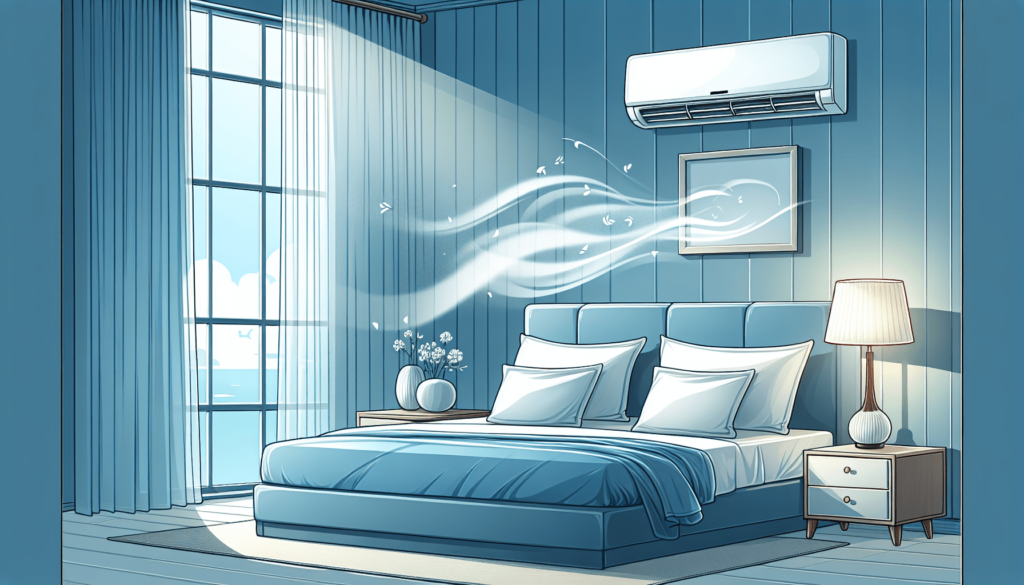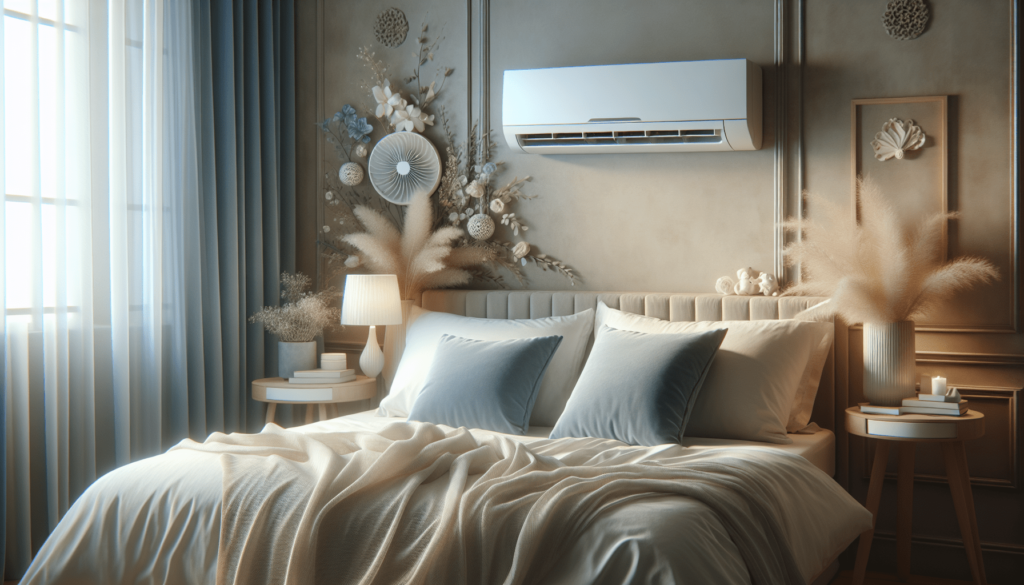30June 2024
In this article, you will learn about the important connection between air conditioning and getting a good night’s sleep. Properly regulated temperatures can have a significant impact on the quality of your sleep, helping you feel more refreshed and energized each morning. Discover how the right temperature setting can create a comfortable sleep environment and improve your overall well-being. Say goodbye to restless nights and hello to peaceful, rejuvenating sleep with the help of your trusty air conditioner. Have you ever wondered how air conditioning affects your sleep quality? Whether you struggle with falling asleep or waking up frequently during the night, the temperature of your bedroom may play a crucial role in your overall sleep experience. In this article, we will dive into the connection between air conditioning and better sleep, providing you with valuable insights and tips to optimize your sleep environment.
The Importance of Temperature for Sleep
When it comes to getting a good night’s sleep, the temperature of your bedroom can have a significant impact. Your body’s internal temperature naturally drops when you are preparing for sleep, signaling to your brain that it’s time to rest. By keeping your bedroom at an optimal temperature, you can facilitate this process and improve the quality of your sleep.
What is the Ideal Temperature for Sleep?
Research suggests that the ideal temperature for most people to achieve restful sleep is between 60 and 67 degrees Fahrenheit (15.6 to 19.4 degrees Celsius). This temperature range helps your body’s natural cooling process, making it easier to fall asleep and stay asleep throughout the night.
Maintaining a cool environment can also help prevent disruptions in your sleep cycle caused by overheating or sweating. By setting your air conditioning to the recommended temperature range, you can create a comfortable sleep environment that promotes relaxation and restful sleep.

How Air Conditioning Improves Sleep Quality
Air conditioning plays a crucial role in creating a conducive sleep environment by regulating the temperature in your bedroom. Here are some ways in which air conditioning can improve your sleep quality:
Cooling Effect
One of the primary benefits of air conditioning is its ability to cool down the room, creating a comfortable sleeping environment. By maintaining a cool temperature, air conditioning can help your body relax and prepare for sleep, making it easier to fall asleep and stay asleep throughout the night.
Humidity Control
In addition to cooling the air, air conditioning also helps control humidity levels in your bedroom. High humidity can make the room feel stuffy and uncomfortable, making it difficult to sleep. By reducing humidity levels, air conditioning can create a more pleasant and breathable sleep environment, enhancing your overall sleep quality.
Noise Reduction
Many air conditioning units come equipped with noise-reducing features that help create a quieter sleep environment. Noise from outside traffic, neighbors, or other sources can disrupt your sleep and affect its quality. Air conditioning can help mask external noises and create a peaceful ambiance that promotes restful sleep.
Continuous Air Circulation
Proper air circulation is essential for maintaining a healthy sleep environment. Air conditioning helps circulate the air in your bedroom, preventing it from becoming stale or stagnant. This continuous flow of fresh air can improve the overall air quality in your bedroom, making it easier to breathe and promoting restful sleep.

Tips for Using Air Conditioning for Better Sleep
To maximize the benefits of air conditioning for better sleep, here are some tips to keep in mind:
Set the Right Temperature
As mentioned earlier, the ideal temperature range for restful sleep is between 60 and 67 degrees Fahrenheit (15.6 to 19.4 degrees Celsius). Experiment with different temperature settings to find the one that works best for you and promotes a comfortable sleep environment.
Use a Programmable Thermostat
Investing in a programmable thermostat can help you regulate the temperature in your bedroom more effectively. Set the thermostat to lower the temperature at night when you are sleeping and raise it during the day when you are awake. This will ensure that your bedroom is always at the optimal temperature for restful sleep.
Maintain Your Air Conditioning Unit
Regular maintenance of your air conditioning unit is essential to ensure optimal performance. Clean or replace the air filters as recommended by the manufacturer to prevent dust and debris from accumulating. Additionally, schedule annual maintenance checks to detect any issues early and keep your unit running smoothly.
Consider Using a Fan
If you prefer not to use air conditioning or are looking for a more budget-friendly option, consider using a fan to improve air circulation in your bedroom. Fans can help create a cooling breeze and circulate the air, making the room feel more comfortable for sleep.

Conclusion
The link between air conditioning and better sleep is undeniable. By maintaining a cool and comfortable sleep environment, you can promote relaxation, improve sleep quality, and wake up feeling refreshed and energized. Whether you invest in a high-quality air conditioning unit or opt for a fan, prioritizing the temperature of your bedroom can significantly impact your overall sleep experience. Experiment with different strategies and find what works best for you to optimize your sleep environment and achieve better sleep. Sweet dreams!

